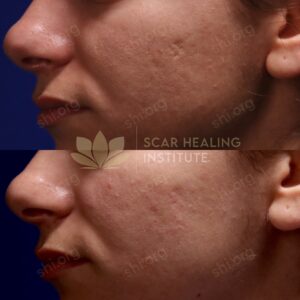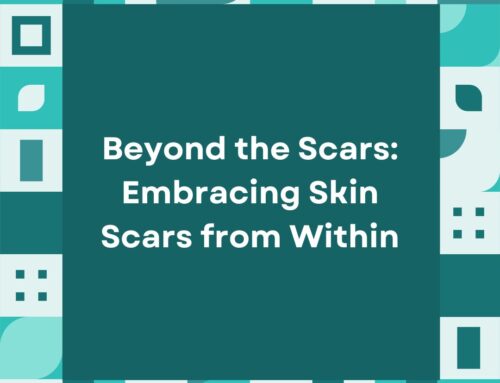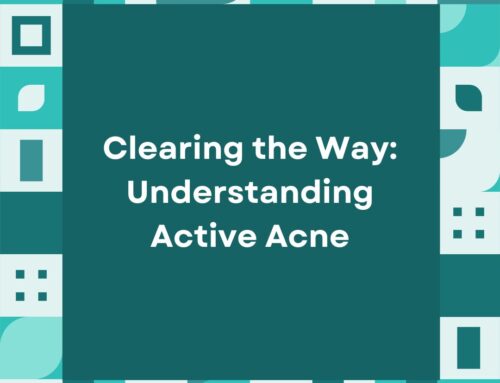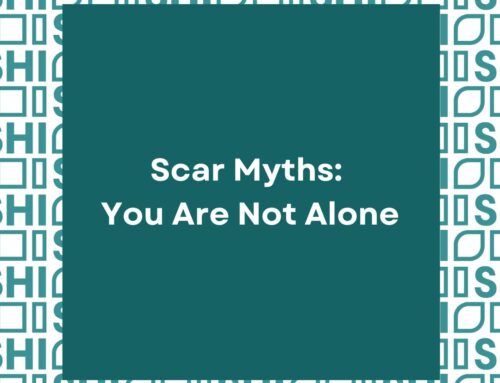Acne scars are a lasting reminder of people’s battles with acne. What many people do not understand is that scarring is not only a natural healing response, but also a defense mechanism: scars are naturally tougher and denser to protect the skin from repeated injury to the same area.
But because facial acne scarring presents such an important cosmetic concern to people, many wonder if their acne scars will gradually improve over time. In this blog, we will attempt to answer this question and empower you with the right information to help you on your journey towards healthier and more radiant skin.
How long does it take for acne scars to heal?
The definition of acne “scarring” varies from person to person. There are people who – fortunately – suffer from only skin discoloration, such as post-inflammatory hyperpigmentation or redness.
Hyperpigmentation usually fades on its own but can be treated with very basic topical therapies or low-grade lasers. Similarly, redness tends to dissipate on its own in 6 to 12 months after the acne has been totally resolved.
Redness is completely normal; it is an indication of blood vessels delivering oxygen to the damaged skin, which means that the skin is continuing to heal.
Now the more common types of acne scarring that people are concerned with are the raised skin lesions or depressions. In the first 6 to 18 months, you might notice that these scars soften or become less noticeable with time.
However, unlike mere skin discoloration, these types of scars rarely go away completely without medical intervention. Their more permanent nature can be attributed to drastic alterations in collagen remodeling during the healing process, which can only be reduced with targeted skin treatments.
Are acne scars permanent?
Scars are permanent.
When we talk about “scars,” we are referring to those that have an altered appearance, either with depressions or raised areas, or a change in their overall shape (discoloration, on the other hand, is usually transient and much more easily treatable).
Does that mean that all hope is lost? Absolutely not! Significant improvements can be made to the appearance of acne scars with the right treatments.
Do acne scars get worse with age?
Yes, acne scars do get worse over time. Although you may notice temporary improvement in your younger years, this effect is fleeting because youthful skin is more resilient. However, as you age, the progressive loss of important structural proteins in the skin, notably collagen and elastin, will cause your acne scars to continually deteriorate with time.
In fact, all people, including those without acne scars, will start to eventually see early signs of aging, including fine lines, wrinkles, and sun damage. Acne scars are essentially little pockets of skin that have lost significant amounts of collagen. Combine this with the natural effects of aging and you may start to see your acne scars deepen over time.
How soon can I undergo acne scar treatment?
The earlier you treat your acne scars, the better the outcome. Wounds undergo a progressive maturation process that turns a raised or depressed, inflamed lesion into a firmer and more defined scar.
During this process, collagen fibers are restructured and realigned, giving scars their distinct appearance. Treating scars during their early stages can guide this remodeling process in a more favorable direction, promoting more controlled organization of newly produced collagen fibers.
Of course, you will want to wait until the majority of your acne has subsided. Performing acne scarring treatments on active acne can promote excessive inflammation, which can lead to additional scarring.
Additionally, you should avoid treatments if you have recurrent acne, as it would be redundant to keep undergoing acne scar treatments if new episodes of acne are leaving behind new scars. It is best to speak with your dermatologist about active acne management before considering scarring treatments.
How long do acne scar treatment results last?
There are a variety of treatments that deliver long-lasting improvement for your acne scars. As a rule of thumb, we tell patients that they must wait a full year to 18-months to see the final results of their treatments. This is mainly because swelling (including micro-swelling) can temporarily camouflage your acne scars by stretching the skin to give the appearance of improvement. However, after swelling completely subsides, the scars may begin to reappear.
What are the best treatments for acne scars?
There is no single “best” treatment for acne scars. Instead, it takes an up-close and thorough examination of the skin, assessment of prior medical and surgical history, and experimentation to understand how to produce the most optimal treatment outcome for your skin.
Yet, while there is no universal guideline for treating acne scars, there are several tips that we offer patients to give them an idea of what to research and how to approach creating their treatment plan with their dermatologists:
- Start acne scar treatment as early as possible. Read above to understand why.
- Understand your acne scarring profile:
- Ice pick scars respond best to TCA or Phenol CROSS (Chemical Reconstruction of Skin Scarring) and punch excision
- Rolling scars are most effectively treated with subcision and filler.
- Boxcar scars are interesting in that they respond in varying degrees to a wide variety of treatments, including CROSS, subcision, dermabrasion, laser, and punch excision.
- Get treatments consistently to trigger synergistic collagen production.
- Raise the skin depressions first before working on texture. It is easier to fill a pothole and then smooth out the road than to smooth out the road to the level of the pothole.
- Not all treatments are meant to produce “visible” results. Some treatments are meant to trigger changes at the molecular level to set you up for success with future treatments to deliver those noticeable results later on.
- Be patient! Results will not come immediately!
Conclusion
Acne scars will heal by themselves to a certain extent as with all types of scars. They may fade at first but are still considered permanent nonetheless. This is why it is important to take early action to guide the remodeling process of acne scars towards a more optimal outcome, especially when scars are more responsive to targeted treatments at this point.
While there is no perfect cure for acne scars, there are a myriad of treatments that you can explore with your dermatologist to produce the best results for your skin.
At the end of the day, the power to improve your appearance and regain your confidence is still in your hands. We can help you achieve that at Scar Healing Institute.
Schedule an Appointment
Scar Healing Institute
Scar Healing Institute is committed to developing the most effective treatments for scarring. Our team of scar revision specialists are continually inventing the latest technologies and formulas to deliver the best results for our patients.





